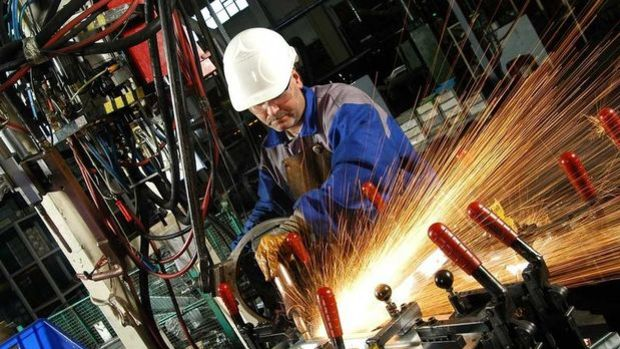Deterioration in manufacturing continued in the 7th month, production at its lowest pace in 6 months
The headline PMI, which was 47.4 in December, reached its highest value in the last four months at 49.2 in January, indicating that the deterioration in operating conditions is easing. Although the Istanbul Chamber of Industry (ISO) manufacturing PMI reached its highest value in the last four months, it remained below the 50 threshold for the seventh consecutive month. In line with the easing of the negative course in operating conditions, the decrease in production was measured at the slowest pace in the last six months. The results of the Istanbul Chamber of Industry (ISO) Turkey Manufacturing PMI (Purchasing Managers' Index) survey for January 2024 were announced. According to the survey results, where all figures measured above the threshold value of 50.0 indicate improvement in the sector, the headline PMI, which was 47.4 in December 2023, rose to 49.2 in January 2024, indicating that the deterioration in operating conditions is easing. Although the headline PMI reached its highest value in the last four months, it remained below the 50 threshold for the seventh consecutive month. In line with the easing of the negative trend in operating conditions, the decline in production was measured at the slowest pace in the last six months. According to survey participants, demand remained fragile in January, but also showed some signs of improvement. The contraction in new orders reaching its seventh month was another development confirming the ongoing fragility in demand. New export orders also slowed, but this slowdown was quite moderate. Due to the weakening in new orders, firms also reduced their purchasing activities and inventories. However, employment remained flat in the first month of the new year after a limited increase in December. Inflation is at its highest level in the last five months, and input cost inflation accelerated significantly in January, reaching its highest level since August of last year. While a significant portion of participants pointed to the effects of the minimum wage increase, it was stated that the increase in raw material costs and the depreciation of the lira also contributed to price pressures. As a result, manufacturers also increased their own sales prices at a significant pace, and inflation reached its highest level in five months. Suppliers’ delivery times, which had shortened slightly in December, extended in January. According to some survey participants, the increase in delivery times was due to shipment delays caused by developments in the Red Sea. Data shows a good start to the year Commenting on the Istanbul Chamber of Industry Turkey Manufacturing PMI survey data, S&P Global Market Intelligence Economics Director Andrew Harker said: “The January PMI data gave positive signals that the slowdown trend in the sector is easing. The historical relationship between the PMI and official industrial production data shows that the year has started well. However, there are still some challenges for manufacturers. The rapid acceleration in cost inflation led to high increases in final product prices, limiting demand. On the other hand, transportation problems in the Red Sea caused new disruptions in supply chains that were expected to improve by the end of 2023.” Demand and production under pressure The Istanbul Chamber of Industry's Turkey Sectoral PMI report indicated that inflation accelerated sharply at the beginning of the year due to the increase in raw material costs and the depreciation of the lira, as well as the minimum wage increase. In January, when demand and production were under pressure, growth was limited only to the chemical, plastic and rubber sectors. More positive developments stood out on the employment front, and five out of ten sectors increased their employee numbers. Input costs recorded significant increases in the manufacturing industry in January. Inflation gained momentum in all sectors except for non-metallic mineral products. The sharpest price increase was recorded in land and sea vehicles, while the lowest inflation was in base metals. The fastest increase in sales prices in January also occurred in land and sea vehicles, and inflation in this sector reached its highest level in the last five months. The slowest increase was measured in non-metallic mineral products. Final product prices increased faster than in December in all sectors. Manufacturers face a challenging demand environment at the beginning of 2024. While new orders slowed down in all sectors except for chemical, plastic and rubber products, the sector with the sharpest decline was clothing and leather products. On the external demand side, a more positive picture emerged. While new export orders increased in four sectors, the fastest expansion occurred in machinery and metal products. In January, growth in production, as in total new orders, was limited to the chemical, plastic and rubber sectors. The most significant slowdown in production was recorded in non-metallic mineral products. Half of the ten sectors monitored started the new year by expanding their employment. Food products increased their number of employees for the first time in the last four months. In contrast, the most significant loss of employment was seen in clothing and leather products companies. Delivery times extended in seven out of 10 sectors Due to the delays that arose due to the problems experienced in the Red Sea in January, suppliers' delivery times extended in seven out of ten sectors covered by the report. The most significant increase in delivery times was seen in chemicals, plastic and rubber products. Delays in deliveries occurred despite the general decrease in purchasing activities. Purchasing volume decreased in eight out of ten sectors monitored.


